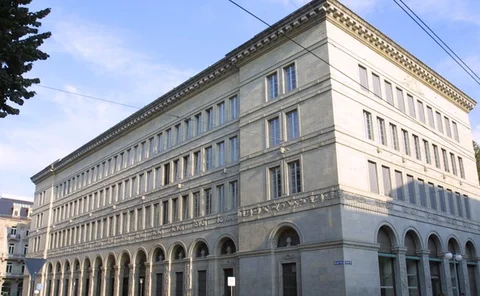Financial crisis
Lender of last resort is not enough, says Geithner
There is a lot of “magical thinking” about what central banks can do, says former US Treasury secretary
Fed’s Rosengren sees less room to tackle next recession
Fiscal, monetary and regulatory buffers are not as high as they should be, says Boston Fed president
‘Hyman Minsky was right’ – Don Kohn
Macro-prudential policy should mitigate crisis risks, but needs to be well communicated, says Bank of England policy-maker
Swiss banks are more resilient now than before crisis – Zurbrügg
‘Too-big-to-fail’ especially relevant for Swiss economy due to strong role of few major banks
US and UK central banks take similar policy stances, researchers find
Richmond Fed examines responses to major monetary policy shocks
Insights from network analytics in suptech
With regulators leveraging technological innovations to move towards informed, data‑driven decision‑making and automation, supervisory technology is attracting enhanced interest. Kimmo Soramäki and Phillip Straley examine how regulators are gaining…
Bank of Spain paper looks at G20 regulatory agenda
“Globally significant” banks’ perceived risk likely to rise, researchers say
The Bank of England’s missing records
Central banks need to implement robust archiving frameworks, should they want to maintain public trust and learn from the lessons of the past, writes former Bank of England official historian Forrest Capie
Flatter US yield curve may not herald a new crisis – San Francisco Fed
The curve inversion has not materialised, while low long-term yields may be related to quantitative easing
Weidmann urges Greece to implement further reforms
Deutsche Bundesbank president recommends additional reforms and “sound” fiscal policy
Senior Fed officials split over the state of US job market
Regional presidents and FOMC members see US under, approaching or beyond full employment
Financial crisis lowered US output – San Fran Fed research
US output has been persistently lowered by 7 percentage points, researchers say
Next financial crisis “will be brewing” in shadow banking – Bullard
Silicon Valley disruption represents threat to financial stability; Fed has limited powers to counter it despite FSOC and tough new bank rules, says Eighth District president
Capital markets union a la Willie Sutton
When Sutton was asked why he robbed banks, he said: “That’s where the money is.” Europe has yet to address where the capital markets union funding should come from, but there is a solution
James Bullard on 2% rates, tariffs and Fed leadership
The president of the Federal Reserve Bank of St Louis speaks about the impact of US trade policies, the disruption to the banking industry from Silicon Valley, shrinking the Fed balance sheet and the potential for agent-based modelling
Spanish banks strongly influenced by knowledge of firms, paper finds
Banks’ understanding of clients helped smooth credit contraction during financial crisis – researchers
Turkish lira reaches fresh low as crisis impacts emerging markets
Central bank announces lower reserve requirements in bid to increase liquidity
The perilous road to normality
Many central banks are starting to tighten policy, but their room for error is limited and their final destination unclear. What more can they do?
Eurozone mortgage lending back to pre-crisis levels – ECB
New loans reached 4.5% of GDP in the year to March 2018; average since 2001 is 4.4%
Strong US economy reduces risks from normalisation – Barkin
Richmond Fed president points out consumers are increasingly concerned about tariffs
FPC better equipped for crisis than FSOC – BoE paper
Paper compares how macro-prudential regulators in UK and US would handle a 2008-style crisis
Fed’s QE contributed to increased risk-taking by lenders – research
Mortgage real estate investment trusts increased leverage following Fed’s asset purchases
Central bank cyber security: a weak link in the financial system?
Disgruntled hackers are targeting central banks, whose cyber defences may not be up to the test
Equities pushing US wealth inequality - Minneapolis Fed paper
Wealth inequality boosted by record-high stocks and slower growth in house prices, paper finds























